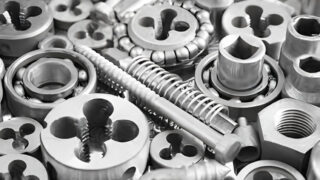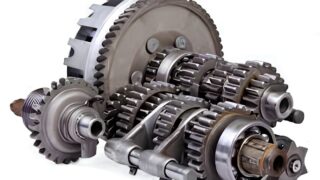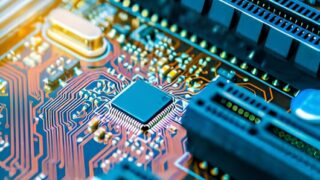Electrical Appliance Specificities impacting Quality Control Service and Product Inspection
The electrical appliance industry is a dynamic sector focused on designing, manufacturing, and distributing a wide range of appliances for both residential and commercial use. It encompasses products such as kitchen appliances, home comfort devices, entertainment systems, and personal care tools.
With constant technological advancements, manufacturers strive to incorporate new features and improve energy efficiency. The industry is highly influenced by consumer demand, as people seek convenience and comfort in their daily lives.
However, price constraints also play a significant role, as manufacturers need to balance technological innovation with affordability to meet the diverse needs and budgets of consumers. Safety and regulatory compliance are essential considerations, and sustainability and energy efficiency have gained prominence.
Quality control is essential in the electrical appliance industry for both manufacturers and importers. It ensures that products meet safety standards, perform reliably, and satisfy customer expectations. Quality control verifies the reliability of components, tests performance, and ensures compliance with regulations.
By implementing rigorous testing and inspection processes, it minimizes defects, reduces product recalls, and enhances customer satisfaction. Manufacturers and importers rely on quality control to deliver high-quality electrical appliances, build trust with consumers, and maintain their brand reputation.
Worldwide Quality Control (WQC) is a trusted provider of exceptional quality control services for electrical appliances. With a focus on upholding the highest standards of quality and craftsmanship, we ensure that every product, whether manufactured domestically or sourced internationally, meets stringent benchmarks.
Our extensive expertise and industry experience make us the preferred partner for manufacturers and importers seeking reliable quality control solutions. Through meticulous inspections and adherence to international standards, we safeguard brand reputation, exceed customer expectations, and thrive in the dynamic electrical appliance market. Choose WQC for unwavering dedication to excellence in quality control.
Usual Norms and Standard related to Electrical Appliance Quality Assurance
- IEC (International Electrotechnical Commission) Standards
- UL Certification
- CE Marking
- Energy Star
- RoHS Compliance
- ETL Certification
- Energy Efficiency Certifications
- EMC (Electromagnetic Compatibility) Certifications
- Water and Dust Resistance Certifications
Maintaining compliance with established norms and standards is a top priority for manufacturers, importers, and suppliers when it comes to quality assurance in electrical appliances.
Items related to Electrical Appliance subject to Quality Control and Quality Inspection
The commitment to maintaining the highest levels of quality and safety in China’s electrical appliances is upheld through a meticulous system of quality control and extensive inspection procedures. This meticulous approach encompasses a broad spectrum of items, ensuring that no detail is overlooked. Some of the items subjected to rigorous scrutiny include, but are not limited to:
- Refrigerators
- Air conditioners
- Washing machines
- Dryers
- Dishwashers
- Ovens and ranges
- Microwave ovens
- Toasters
- Blenders
- Coffee makers
- Electric kettles
- Food processors
- Electric grills
- Vacuum cleaners
- Irons
- Hair dryers
- Electric toothbrushes
- Electric shavers
- Ceiling fans
- Electric heaters
- Water heaters
- Electric fireplaces
- Televisions
- Home theater systems
- Soundbars and speakers
- Audio receivers
- DVD players and Blu-ray players
- Gaming consoles
- Smart home devices (smart plugs, smart lights, smart thermostats)
- Security systems (CCTV cameras, alarms, door locks)
Our organisation is fully dedicated to providing a comprehensive suite of quality control and inspection procedures that leave no room for compromise. We leave no stone unturned, starting from meticulous evaluations of raw materials to rigorous examinations of the final products. Our unwavering adherence to critical quality standards and specifications, with a strong focus on safety, reliability, and performance, sets us apart in the industry. Through diligent inspections and thorough testing at each stage, we proactively identify and address any potential issues, ensuring that our clients receive exceptional, top-tier products. Our commitment to upholding the highest quality standards is a testament to our dedication and gives our clients the assurance that their products not only meet but exceed expectations.
How we can help you with Electrical Appliance Quality Control
We are strategically located worldwide to help importers, buyers, traders, retailers and startups with quality control, quality inspection and factory audit operations.
You have no time to travel and go on-site to check your goods quality or your vendor reliability? We are here to serve you as your decentralised Quality Control business unit capable of representing you on-site.
Available within 48 hours with a fixed on-demand cost.
Quality Inspector skills required to perform inspection of Electrical Appliance in China
- Technical Knowledge
- Understanding of Manufacturing Processes
- Quality Standards and Regulations
- Testing and Measurement Techniques
- Ethical Conduct
- Root Cause Analysis
- Knowledge of Electrostatic discharge (ESD) Control
- Risk Assessment and Mitigation
- Familiarity with Testing Standards and Methods
- Documentation and Reporting
Our quality inspectors located worldwide can help you with quality control related to electrical appliances.
Our experienced inspectors possess extensive industry knowledge and proficiency, ensuring meticulous adherence to rigorous quality standards.
By utilizing our comprehensive inspection services, manufacturers and importers can confidently provide electrical appliances that adhere to the highest levels of quality and reliability.
Trust our dedicated on-ground team of Quality Inspectors to deliver efficient and customized solutions that cater to the unique requirements of the electrical appliance sector.
Most common type of defects related to Electrical Appliance quality control
- Wiring and Electrical Connection Issues: Defects in wiring and electrical connections can lead to malfunctions, short circuits, or even electrical hazards. Examples include loose or faulty connections, improper insulation, and incorrect wiring configurations.
- Component or Parts Failure: Defects in individual components or parts of an electrical appliance can result in performance issues or complete product failure. This can include faulty switches, malfunctioning motors, defective heating elements, or failed electronic circuitry.
- Safety-Related Problems: Electrical appliances must meet specific safety standards to prevent hazards such as electric shock, fire, or overheating. Common safety-related defects include inadequate grounding, insufficient insulation, faulty safety mechanisms, or insufficient protection against electrical surges.
- Design Flaws: Defects in the design of an electrical appliance can lead to poor functionality or inefficiency. This can include issues like inadequate ventilation, inadequate user interfaces, impractical control placements, or insufficient consideration for user safety.
- Manufacturing and Assembly Errors: Defects that occur during the manufacturing and assembly processes can impact the overall quality and reliability of the electrical appliance. Examples include improper soldering, incorrect component placement, poor alignment, or inadequate quality control checks during production.
- Performance and Functional Issues: Defects related to performance and functionality can affect the appliance’s intended purpose. This may include inaccurate temperature control, inconsistent operation, limited functionality, or poor overall performance.
- Aesthetic Flaws: While not directly impacting functionality, aesthetic defects can affect the overall appearance and appeal of an electrical appliance. This may include scratches, dents, paint defects, or inconsistencies in the finish.
- Power Supply Issues: Defects related to the power supply can cause problems with the electrical appliance. This can include issues such as voltage fluctuations, inadequate power input, or compatibility issues with power sources.
- Control and Interface Problems: Defects in the control mechanisms and interfaces of electrical appliances can lead to difficulties in operating the appliance or inaccurate control of settings. This may include malfunctioning buttons, unresponsive touchscreens, or confusing control layouts.
- Energy Efficiency Problems: Defects that affect the energy efficiency of electrical appliances can result in higher energy consumption or poor performance. This can include inadequate insulation, inefficient motors, or faulty energy-saving features.
- Noise and Vibration Issues: Defects in the mechanical components of electrical appliances can lead to excessive noise or vibration during operation. This can be caused by unbalanced components, loose parts, or worn-out bearings.
- Durability and Reliability Concerns: Defects that impact the durability and reliability of electrical appliances can result in premature failure or reduced lifespan. This may include weak or fragile materials, poor construction, or inadequate quality control during manufacturing.
- Environmental Impact: Defects related to the environmental impact of electrical appliances can include excessive energy consumption, the use of hazardous materials, or inadequate recycling options at the end of the appliance’s life cycle.
- Overheating: Defects that cause an electrical appliance to overheat can lead to performance issues, safety hazards, and even fires. This can be caused by insufficient ventilation, malfunctioning cooling systems, or inadequate heat dissipation mechanisms.
- Leakage or Water Damage: Defects that allow water or other liquids to enter an electrical appliance can result in short circuits, component damage, or electrical hazards. This can occur due to improper sealing, faulty gaskets, or inadequate waterproofing.
- Faulty Sensors or Detectors: Defects in sensors or detectors used in electrical appliances can lead to inaccurate readings or failure to detect critical conditions. For example, a faulty temperature sensor in a refrigerator can result in improper cooling or spoilage of food.
- Software or Firmware Issues: Electrical appliances that rely on software or firmware for operation can experience defects related to programming, compatibility, or bugs. This can cause malfunctions, incorrect operation, or system failures.
- EMI/RFI Interference: Defects that result in electromagnetic interference (EMI) or radio frequency interference (RFI) can impact the performance and functionality of electrical appliances. This can be caused by inadequate shielding, poor grounding, or improper component placement.
- Insufficient User Safety Features: Defects that compromise user safety can include the absence or malfunctioning of safety mechanisms such as circuit breakers, thermal fuses, or overcurrent protection. This can increase the risk of electrical shocks or other accidents.
- Inaccurate Measurement or Calibration: Electrical appliances that involve measurements or calibration, such as thermometers or scales, can have defects that result in inaccurate readings. This can be caused by faulty sensors, calibration errors, or improper calibration procedures.
- Inadequate Documentation or Instructions: Defects in documentation or user instructions can lead to confusion, improper use, or difficulty in troubleshooting. This can include incomplete or unclear manuals, incorrect assembly instructions, or lack of safety warnings.
- Compatibility Issues: Defects related to compatibility can occur when an electrical appliance is unable to connect or operate properly with other devices or systems. This can include issues with connectors, communication protocols, or software compatibility.
Our quality inspection team can help you to identify those defects and to prevent you importing improper and defective products related to electrical appliance.
Drawing upon our team’s wealth of expertise in the electrical appliance industry, we possess a deep understanding of the unique requirements and standards that regulate these products.
Our adept quality inspectors serve as a crucial defense against the importation of unsuitable items by swiftly identifying defects and conducting thorough inspections. Through our detailed reports, we offer you a comprehensive assessment of potential risks, equipping you with the knowledge to make well-informed choices. Additionally, we provide alternative products that meet the highest industry standards and offer valuable guidance in implementing robust quality assurance measures.
Rely on us to deliver exceptional electrical appliances that surpass expectations, ensuring the preservation of your brand reputation.
Quality Check Service related to Electrical Appliance
When our quality inspector and quality controller located in China inspect and check products related to electrical appliance, they usually perform the following checking:
- Product Testing
- Electrical Safety Testing
- Component and Material Testing
- Functionality Testing
- Performance Testing
- Safety Testing
- Environmental Testing
- Reliability Testing
- Compatibility Testing
- EMC/EMI Testing
- Usability Testing
- Compliance Testing
- Insulation Testing
- Power Quality Testing
- Aging and Endurance Testing
- Environmental Compliance Testing
- Software and Firmware Testing
- Overload and Short Circuit Testing
- Calibration and Measurement Testing
- Endurance and Stress Testing
Our quality consultant can also help and assist you in establishing custom checklists tailor made for your product.
Performing Factory Audit related to Electrical Appliance
Performing a Factory Audit or a Vendor Assessment in China before starting an engaging fund to buy goods related to electrical appliances can be a good strategy to avoid buying improper goods.
Buying from reliable, reputable and properly business minded vendors can prevent you experiencing disappointments when receiving your goods.
Leverage our full sets of Vendor Audit Services in China to secure your import and business when procuring electrical appliance related items from China.
Out of quality assurance related, you may also want to check your vendor against other standards such as:
- ISO 9001
- ISO 14001
- ISO 45001
- SA8000
- BSCI (Business Social Compliance Initiative)
- WRAP
- Sedex
- C-TPAT (Customs-Trade Partnership Against Terrorism)
- ICTI CARE
- OHSAS 18001
- ETL Listed
- GMP Certification
- IECEx Certification
Ask for a Quality Control report related to Electrical Appliance






